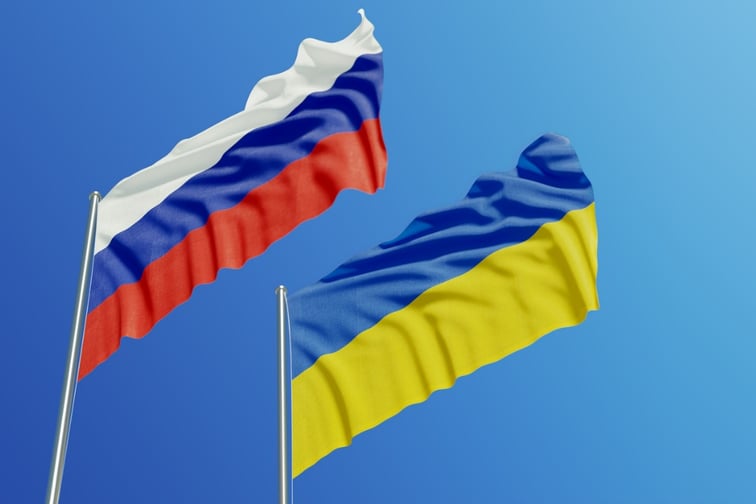

The war in Ukraine and the sanctions imposed on Russia and Belarus have sent shockwaves through the global insurance marketplace.
In the representations and warranties (R&W) insurance market, many insurers are mitigating or eliminating their exposure in the impacted jurisdictions (Ukraine, Russia, Belarus, and surrounding areas) by either responding to policy requests with outright declinations or applying very thorough case-by-case consideration.
Either way, it has become extremely difficult for merger and acquisition (M&A) buyers and sellers to secure R&W insurance if their deal has any connection to the conflict zone. This is not entirely new for the region, where many R&W insurers had limited appetite prior to the conflict in Ukraine, with Russian targets or significant operations in Russia giving underwriters the most pause.
R&W insurance protects insureds against financial loss — including defense costs — resulting from breaches of representations and warranties contained in an M&A purchase agreement. Covered causes of loss must be ‘unknown’ at the time when representations and warranties are made, and the insurance policy is written.
“This conflict has essentially created a known risk related to the countries impacted, as well as potential supply chain disruptions that have dispersed beyond the impacted region,” said Michael Wakefield, CAC Specialty’s transactional liability practice leader.
“The R&W insurance market is based on the idea that the seller makes representations, the buyer confirms those are true, and if there is anything about those representations that is known to be untrue or known to be a risk, it’s not covered. It’s always a spectrum, but we’ve tipped closer to a known risk, where the market is going to be very cautious about taking on any risk related to the conflict in Ukraine.”
Since Russia’s invasion of Ukraine, CAC Specialty has been tracking the market response to ensure its clients obtain the best available terms from the R&W insurance market. Wakefield grouped the markets into three main buckets.
“Some are outright declining to offer coverage at all,” he said. “Even before this conflict, some markets would say: ‘If there’s a tie to Russia, we don’t want to touch it.’ That’s a more conservative approach based on perceptions about risk in Russia […] and you were never going to get insurance from those markets anyway.
“The second bucket contains markets that will specifically exclude any risk that touches Russia and now Ukraine, Belarus, and the surrounding geography. Their approach would be: ‘We can underwrite the risk in this deal, but […] we’re going to specifically exclude everything related to those areas. But we’re not going to decline to offer interest in the deal.’ That is probably the best available [option] at this moment in the market.
“And the third bucket is even more favorable. Before the war started, we were in a world where some markets would underwrite risk in Russia, Belarus, and Ukraine. That is, at this moment, unlikely to be available in the market. The second bucket is probably the best solution for an R&W insurance quote at this stage. I would say more than half of the market is willing to underwrite a risk with an exclusion for the impacted area.”
While due diligence expectations for targets with a nexus in the region have always been high, CAC Specialty reported that underwriters are now looking for robust diligence that confirms M&A transactions pose essentially no risk arising from the current war or political fallout.
“The seller is going to make representations about a broad range of topics related to the deal. Any representations with a connection to Russia, Belarus, and Ukraine are going to get very hard looks from R&W underwriters,” Wakefield told Insurance Business. “Supply chain issues are also going to […] come in one form or another, and representations around a supplier’s ability to meet contractual requirements are going to get a lot of questions.
“All of the sanctions and the impacts on ownership, supply chains, and customers, as well as all the contractual relationships of the target, are going to get a lot of focus. So, underwriters will underwrite the buyers’ legal, financial, and tax advisers’ diligence and make sure that they really drill down on every one of those potential risks.”
Wakefield’s overriding message to everyone – clients, brokers, and insurers – in this very fluid and challenging marketplace is that “policy language matters”.
He stressed: “Yes, we’re going to face exclusions in R&W insurance policies, related to the conflict and the geography. But what those exclusions say is critical to protecting our clients’ interests and making sure that only the truly known issues are excluded. The policy language and the nuances of the coverage matter. It’s easy just to say: ‘Russia is excluded’ - but that’s oversimplifying the issue, as everybody who deals in contracts knows.
“From a client service standpoint as a broker, knowing the market matters because some markets that previously would have done these deals now won’t at all, and some markets that previously didn’t exclude specific areas are now going to exclude those areas. Having your thumb on the pulse of the market in that sense is very important, as well as understanding the policy language.”
